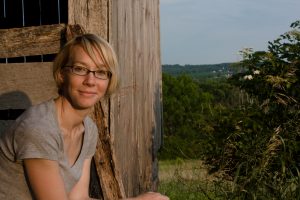Rachel Armstrong, founder and attorney of Farm Commons

In planning our Agritourism Farmer Training Intensive, we knew that we needed someone to speak in depth about the legal and liability issues inherent to bringing the public onto one’s farm. We also knew that we wanted Rachel Armstrong, the founder and attorney of Farm Commons, to fulfill that role. However, Rachel will be more than just a speaker for the training. We’re giving her an entire afternoon to not only do a presentation but also lead discussion and workgroups. I got her on the phone a few days ago to ask her about the training, and my first question was, “why do you feel it’s necessary to have so much conversation about legal issues when we’re talking about fun and educational trips to local farms?”
“All that other stuff,” she said, referring to the other subjects like social media marketing and commercial kitchens that are covered in the training, “is incredibly important to starting an agritourism operation, and those are the things that people always think about. But the thing is, bad things still happen.” As she said this, I was reminded of Jim Carrey’s character in The Truman Show, trying to sell a customer a traveler’s insurance package for a beach vacation because you never know when a “runaway beach umbrella” may strike an unsuspecting sunbather.

“No way to guard against that kind of thing!”
But while it may seem like hyperbole, there are indeed bad things that can happen. Animals can get bitey, no food can ever be guaranteed 100% safe, and there are an awful lot of dangerous objects on any farm. Plus there are zoning concerns, neighbors who may view road traffic and animals smells as nuisances, and some members of the public that just love to litigate. Rachel’s point is that if farmers are not prepared for the inevitability of bad things that can put them in a costly legal bind, “all that stuff you’ve worked towards is lost. It can degrade all your efforts in a really quick hurry!”
She notes that farmers are not unaware of these issues, but that those issues are simply complicated and tedious to address. This is why she will be breaking the training attendees into problem-solving groups, to take advantage of the immense value of “talking to neighbors and discovering how folks are dealing with legal issues within their own communities.”
I asked her if she had seen a lot of concern about legal issues in agritourism in the past. She answered unequivocally, “yes!” She said that people call up all the time and throw ideas and questions at her (a common one she gets is “I want to host weddings. Now what do I do?”), and she recently had over 200 registrants for a webinar on legal issues for agritourism. She says that insurance is a hot-button topic, but people also often want to know about serving food on the farms, and the variety of questions on the topic, from “what happens when I bring food trucks to the farm?” to “can I hold a potluck, and where does the liability of that lie?” proves the point that farmers most definitely need to look before they leap.
And this risk management is what she is all about, in the end. She boiled the need for her kind of presence at our agritourism training down to two points. “First, if you want to make the most of your efforts and make it last long into the future, you need to plan for the risks now. Second, this is the right forum for this conversation. These issues can become unclear and opaque and talking about it in an organized fashion with your neighbors is key to success.”
Finally, I asked her what participants in her afternoon of presentation and discussion would be able to leave with, and if they will have all the answers they need. She laughed and said, “honestly, they are going to leave with a lot of homework. But they will also leave with a lot of new information, a new network, and the confidence to take some steps forward. They will leave empowered!”



